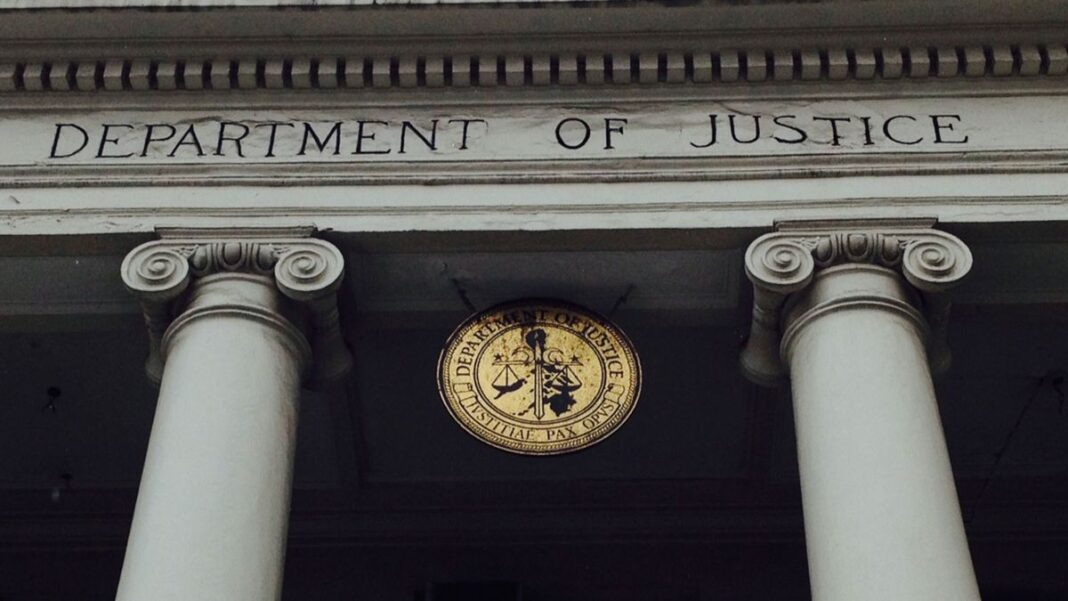“Yes, I do. Yes, I do.” No, this wasn’t a response from the vice president to a “marriage proposal.” Rather, such was the refrain of Kamala Harris (the Democratic candidate for president) who has apparently entered the “Trump is a fascist” phase of her wilting campaign. Asked at a CNN town hall whether she thinks Donald Trump is a fascist, Harris was not content with one “Yes, I do;” it took two.
She went on to say that while it is true that the American people care about the economy, they “also care about our democracy and not having a president of the United States who admires dictators and is a fascist.” The occasion for Harris’ new line of attack is former Trump chief of staff John Kelly telling The New York Times that Trump meets the definition of a fascist, and former chairman of the Joint Chiefs of Staff Mark Milley maintaining, according to Bob Woodward, that Trump is “fascist to the core.”
But for scholars who’ve long studied fascism, defining fascism isn’t so simple.
“We’re not just debating whether or not Trump fits that definition; we are not agreeing on what that definition is,” Sheri Berman, a political science professor at Barnard College, Columbia University, told ABC News in an interview.
There is no scholarly consensus on the term, according to both Berman and Mark Bray, a political scientist from Rutgers University. This is, in part, because fascists historically have not been tied to “rational consistency,” Bray said, pointing to Italian dictator Benito Mussolini and Nazi Germany dictator Adolf Hitler whose policy positions changed on a variety of occasions. Donald Trump is many things, but inconsistent in his reasoning – what he thinks – is not one of them.
To Berman, fascists are totalitarian with the goal of not just controlling politics, but reshaping society and controlling the economy. Donald Trump advocates free markets to grow the economy, not control it.
Bray stops short of calling Trump a fascist in the traditional sense, as he in no way embraces the ideals of a historical fascist. For example, fascists have historically rejected free market capitalism, unlike Trump who is a strong advocate of more freedom through smaller government.
The Progressive Roots of Fascism?
There are, of course, other ways of looking at fascism and who might fall under that rubric.
Adolf Hitler and Benito Mussolini have become, for many of us today generic personifications of evil or (in Mussolini’s case) an authoritarian buffoon. Yet, their ideologies were rooted in specific philosophical ideas – ideas which had many respectable adherents in their day.
One person who articulates this view is Jonah Goldberg, author of the 2007 book Liberal Fascism: The Secret History of the American Left from Mussolini to the Politics of Meaning. Goldberg argues that fascism shared roots in common with what we call modern liberalism or progressivism. People often argue over whether Hitler and Mussolini were “right wing” or “left wing.” More to the point is that, according to Goldberg, both men’s ideologies had roots in the Progressive movement of the turn of the 20th century.
The Progressive movement was closely tied to the philosophy of Pragmatism: the belief that thought is a tool for action and change. In contrast to the ancient and medieval philosophers, for whom philosophy was the contemplation of reality, the Progressives were animated by the desire to mold reality and to harness knowledge for social betterment. Many in the vanguard of progressive thought initially were enamored of Mussolini and even Hitler, considering their dictatorships an interesting “social experiment,” until the worst happened.
H.G. Wells, the popular science fiction writer, was one. In a number of speeches and books he praised the militaristic social mobilization in the new fascist regimes: an entire society moving as a single unit under the rule of a Nietzschean superman. Complete state control of all aspects of life was seen as highly pragmatic and scientific by many. Nationalism and militarism—elements commonly associated with the Right—were actually key components of the Progressive Era, flourishing in particular under President Woodrow Wilson, as Goldberg documents in his text.
It seems to this writer that Goldberg went too far in his characterizations, but that fact does not diminish the weight of a further point.
One does not have to cite progressive thinkers like Wells who considered early 20th century dictatorships a useful “social experiment” or Democratic fans of eugenics to underscore the totalitarian threat in America’s history. Moreover, frightening examples are still with us today in the form of woke ideology, Antifa and others.
Fascism does not accord with the 45th President of the United States.
History illustrates that 20th-century fascists detested parliamentary democracy. They subscribed to the state as preeminent over the individual, holding bourgeois existence in contempt, promoting a cult of personality idealization.
Violence was fundamental to fascist rule, illustrating nihilistic tendencies and with the absence of consistent rational thought, elevation of and reliance on the military to achieve its goal.
The “Fuhrer” held to an existential struggle within our species, a conflict the “Aryan race” would perpetrate towards subjugation or annihilation of any peoples perceived as inferior.
Yes, Trump utters crude and undignified remarks and acted unwisely after the 2020 election. But the notion that there is any meaningful correlation between the former president and the horrific movements or despots of the past is absent of any reasonable merit.
No one (including the Democratic candidate for president) accords any credence to the idea of Trump deploying a paramilitary wing of the GOP to intimidate and war with his “enemies” on America’s streets.
Rather than pursuing the classic fascist objective of territorial expansion and self-aggrandizement through conquest, Trump often contends against his own party’s war hawks – frequently getting him into trouble.
In President Trump’s first term in the White House, he appointed strict constitutionalist judges, sought to reduce the size and power of the federal government. He extolled the virtues of free enterprise, restored due process on college campuses and proved, like no other president, a profound friend of the Jewish state – recognizing Jerusalem as its capital, the Golan Heights as Israeli sovereign territory and sponsoring the Abraham Accords.
Instead of pursuing a fascist politics of racial purity, his efforts on his campaign for president are directed towards putting together a more multi-racial political coalition and is, in fact, demonstrating success in this regard.
The accusations against Trump as a fascist rely on misinformation, deceit, innuendo and frankly (just plain ignorance of history) from those unable to succeed without diminishing the capabilities of someone they can’t measure up to or more to the point – they just don’t like – it’s personal.
Fascism is not endemic to American soil, but Donald J. Trump, to borrow General Milley’s own phraseology, “is American to his core.”
It seems to this writer — this is precisely the type of American we should want as President of the United States.





